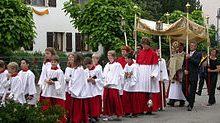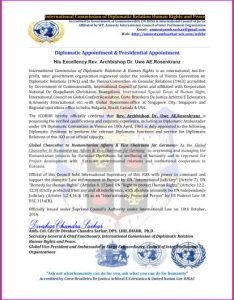Wir von Holy Rosary Church freuen uns,
mit der LOGOS Universitäts-Campus von
http://RosaryParish.com eine All-in-One academische Lösung
für unsere Mitglieder aus der weltweiten Mission präsentieren zu können.
Als ermutigendes Beispiel dient das Dallas Theological Seminary:
A Portable Library for Every Student: How Dallas Theological Seminary Equips the Next Generation
2,551
students
18
extension centers and regional locations
3
language programs
400K
students in free online courses
In the past century, technology has changed the way we research, the quality of work, and even the way we interact. But when you’re talking about seminary education—an educational system as old as the Church itself—it’s easy to stick with the didactic methods that have always worked.
Not so at Dallas Theological Seminary. The seminary has experienced massive growth since its inception in 1924, when it began with 13 students. Now with over 16,000 alumni and nearly 2,500 current students, the faculty carefully weighs new ideas and methods for educating future leaders. DTS President Dr. Mark M. Yarbrough says, “We’re married to the mission, but we date the methodology.”
Nowhere is that philosophy more apparent than in the seminary’s search for systems and software that help equip the next generation of pastors, scholars, and missionaries for a lifetime of ministry.
The problem Dallas Theological Seminary needed to solve
With one main campus and seven extension sites—including degree offerings for online, Chinese, and Spanish-speaking students—DTS offers theological education to believers around the globe. But this expansion led the faculty to ask questions about how best to instruct seminary students and prepare them for future ministry.The faculty saw a related issue for main campus students, too. While students in Dallas have access to a vast library of theological resources, not every book represents current thinking on important matters—and digging through 40 pounds’ worth of books hinders theological research.
All their questions were held together by one overarching theme: How do we get contemporary evangelical resources to our students?
To solve this problem, DTS assembled a committee of faculty, staff, and board members. They knew technology would be the answer, but they still needed to evaluate which technology was the best fit for DTS’ students and faculty.
The committee evaluated different Bible software on 12 categories, including whether it
• works on Mac, PC, mobile, and web;
• contains original language study tools;
• has resources in Chinese and Spanish;
• offers training for students and faculty; and
• has a reliable history as a company.When committee members reviewed their options, they found a clear winner in Logos Bible Software.
How Logos helped bridge the gap
With Logos, DTS wanted to gain an institutional system—one that each student and faculty member could learn to use together. Even better, the committee could curate a library specifically for DTS, so every student and faculty member would start with the same basic library.The library itself was designed for students in every course of study, from technical fields such as biblical languages to practical and ministerial studies. “Knowing that all of our students have a continuity in the resources they have access to is a very powerful thing,” Yarbrough says. “Students can’t make any excuses. We customized a particular library for them—really good scholarly, evangelical resources at their fingertips.”
Getting the entire student body and faculty onto the same system and giving everyone online access to the same resources was the key to solving the problem of inconsistent library access.
One of the most significant improvements the faculty has seen comes in bibliographic research. Students no longer have to labor over 50- to 60-year-old resources during campus library hours. They can now open a contemporary evangelical library anytime, anywhere.
Potential students, too, see great value in DTS’ partnership with Logos. Those interested in research know that DTS will equip them with tools like Logos to help them accomplish their goals, and they see Logos access as a significant perk to choosing DTS. Lifelong access to Logos after graduation also proves that DTS is committed to their long-term growth, both personally and vocationally.
DTS today
DTS has grown tremendously in the six years since implementing Logos campus-wide. With a 25% increase in students and a 15% increase in billable hours, the seminary needed more Logos software licenses sooner than they expected.Now that DTS has been all-in on Logos for several years, they’re looking to the future. “We’re very mission-driven,” President Yarbrough says, “but we’re all about experimentation and asking, ‘Are there new ways we can carry out our mission?’”
One new way DTS is fulfilling its mission is by offering free online courses for people who couldn’t attend seminary otherwise. The program has exploded to 200,000 people and become a recruitment avenue for DTS. With so many interested in theological education, Yarbrough and the faculty are now asking what it would be like to offer a baseline Logos package for those students.
Yarbrough says DTS is exploring expanding its foreign language programs. As his team is looking into it, they’re asking how Logos can help them accomplish the school’s mission.
Explore Logos academic solutions
“We are doing what we’re doing for our students, for the sake of the gospel, but we want to do it with great transparency. I was encouraged by the missional partnership [with Logos] that continues to this day. It started from the minute we signed the contract. And we want to keep asking ourselves how we can make this even better.”—Mark Yarbrough, President of Dallas Theological Seminary
Equip Your Students for a Lifetime of Ministry with an Institutional Partnership
When your institution partners with Logos, you’ll equip your entire student body and faculty with Logos Bible Software, the standard tool for scholarship and ministry. They’ll have Logos for the rest of their lives, making this a long-term investment in the future of the church.






 Portalbetreiber und Leistungsträger:
Portalbetreiber und Leistungsträger:




